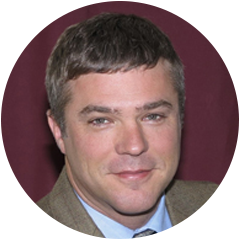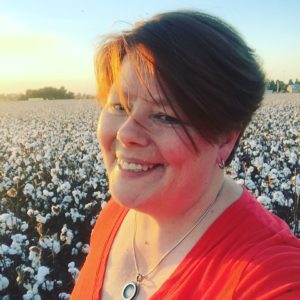Janice Person:
Welcome to Ag Over Easy, the podcast from Channel where you get breakfast with a side of agronomic insight. I'm your host Janice Person. And today we're going to start off the day with hotcakes. They're fluffy, warm and delicious. Now, if you've ever had hotcakes, you know they're best served, well, hot. The same thing goes for great marketing advice. For farmers to create a solid strategy, they need to stay up to date with the latest market trends and fluctuations. We've invited Matt Bennett, Channel grain marketing consultant to discuss how he got into the industry, how to develop a strategy, and why it matters. So let's enjoy our hotcakes while he shares his hot takes. Shall we? Hey Matt, are you enjoying those pancakes? Those hotcakes there?
Matt Bennett:
Yes, I am. They're pretty darn good. So I usually don't eat, I don't eat pancakes a lot. I mean my kids love them. I try to maybe not eat them too often because I know that it's probably not the most healthy meal, but boy, it's hard to stay away from them whenever you've got little kids that want to eat them all the time.
Janice Person:
Appreciate your taking some time to talk to us about all things Matt Bennett. So we've already started with family. You've got kids. How many? What are they doing this year?
Matt Bennett:
We've got five kids and they're all spread out. So my oldest basically she's 22 and married. She graduated from college in three years. So she's at Fort Benning, Georgia with her husband. And then I've got a son that's a sophomore in college. And so he's still at home, goes to the local community college. I think he's wanting to get away from home for years three and four and so next year he's probably going to end up, oh, maybe Kansas State or Oklahoma State. He really wants to get away to a really good ag school and have it be a little farther from home. And then we've got three more. So Reese is 15, she's a sophomore, Toby is eight. And so he's in third grade and then Abilene is four. So she's doing some preschool stuff this year.
Janice Person:
Yeah. Well, five kids. That must be a lot of pancakes or a lot of waffles. Is there a divide in the house of who's a hotcake person versus a waffle person?
Matt Bennett:
Not really. Actually if I make pancakes or waffles, they're all just thrilled to death. And so to be honest, I don't think they have a whole lot of preference as long as they get one or the other. So on the weekends, usually we're big breakfast people, and if I say, "Well, you know what? I'm going to go ahead and make some bacon and eggs." They're pretty excited, but they're like, "How about a couple of pancakes to go with that?" So they usually talk me into it, their mom, Tif, she's maybe a little harder bargain sometimes. So she, I'm little easier, I guess and part of that it's probably because I like to eat the same things they like to eat.
Janice Person:
Tell me, when did you get into ag and how did you get that really moving forward?
Matt Bennett:
As far as figuring out my niche, if you will, I always knew I wanted to farm, but whenever I went to the University of Illinois, I took a marketing class and I grew up in a family that had a couple of small grain elevators and we farmed. So the professor comes in maybe the fourth or fifth class and said, "We're going to have this big project this year. You have to find a partner." And the best looking gal in the class comes up to me. I didn't even know who she was. She said, "Would you be my partner?" And I'm like, "Sure, I guess, but why are you picking me?" She's like, "You're the only one that knows what the heck you're doing in this class." And so a light bulb went off in my head. I'm like, hey, I've got something that people want. Maybe I can do something with this in life.
Matt Bennett:
And that's how I got started really getting interested in marketing because it came easy to me and I enjoyed it. It's just something I enjoyed that it wasn't a struggle to learn. And so that's how I decided I want to farm and I want to be involved in the markets in some way. And it's worked out really well for me.
Janice Person:
So for you, there wasn't necessarily a direct path. It was just tapping into that passion once you found it and then growing from there. Is that right?
Matt Bennett:
Absolutely. Basically what I did was I started being in consulting. Whenever I got out of the elevator business for good, in 2014, I had a good relationship with the company that I worked with it was called Total Grain Marketing. It's a Growmark-owned facility. They had a really good relationship with them, but I decided I'd go out on my own and started being in consulting. And then I ran that until 2019 when I joined forces with some other guys in the industry, because I had grown enough that given my travel schedule and a lot of the things I was involved in, I needed to be looking bigger picture. And so we'd started AgMarket.Net, me and three of my friends in the industry. And so that's worked really well as well.
Janice Person:
How do you start seeing the trends coming and how can you develop that skill? What makes that part of who you are? I should work on it.
Matt Bennett:
Yeah, I think the firsthand knowledge is one of the main things that helps me as a producer. So I've been a farmer, been a grain broker, and I've been an elevator person. And so I guess one thing that just came to my mind is as an elevator owner, you get to see a lot of different people market their grain throughout the year. And you develop a little bit of a knowledge of who's good marketers and who's not, and granted, they're not always the best marketers and they're not always the worst marketers, but you see the ones that typically do a better job marketing. And so firsthand knowledge for me, whether the mistakes that I've made as a producer or what I've witnessed as a grain elevator or broker person, the things that I've noticed from them have certainly helped me to be able to identify some of the things that are important. For instance, during harvest time, during harvest [inaudible 00:06:08] typically very weak because grain elevators as they get full, they don't want the corn.
Matt Bennett:
And so they start bidding less. And if someone wants to bring it, yeah, they're going to make more margin on it, but what they're trying to do is discourage the bushels from showing up and finding producers, figuring out an ulterior way to do things. And so that's something that I've witnessed is I've gone through. So firsthand knowledge is very important. And just trying to learn from some of those mistakes that I've made as a producer.
Matt Bennett:
And so the other thing is I try very hard to make sure I'm reading a lot of different viewpoints, identifying different people's opinions of people that don't always agree with me. Or, maybe it's they're just cut from a little bit different mold, but there's been a lot of times that they've been right and I've been wrong. And so it's helped me to be able to figure out, hey, you know what? I need to be reading them a little bit more often, at least broaden my horizons a little bit on what my focus is on the markets. Because sometimes if you get locked into one side or the other and you get locked into it too long, it could really hurt you from a marketing perspective.
Janice Person:
Oh, I agree. I think that diversity of perspective and the humility with which you look at others sometimes, I mean ego works with us too, right? But sometimes there are factors that others may be paying attention to that if you lived only in your farmer world, you might not catch. So how can a farmer get a good strategy around this for them?
Matt Bennett:
I guess the first thing I usually tell them is I can help you with a couple of different things that are very important. And one of those things is simply, as a producer, whether the market's going to go up or whether it's going to go down, none of us know. I mean and if someone tells you that they know, and they're in the business to quote unquote help you market better, I would turn around and go the other way as fast as you possibly can. Because none of us know. But the thing that I know in my position is if you've got profit on the table, that's a really good idea to lock some of that in. And so what I try to help producers identify is, is what is my cost of production? What is my breakeven at given yields, but what do I need to do once I get the opportunity to lock in a price that's better than my breakeven? What are the tools that I can use?
Matt Bennett:
And so I think we've got to be aware of the tools we can use, first of all. And second of all, be excellent at our bookkeeping, at our record keeping, and figuring out when we can make money and when we can't. Because trying to hit the high of the market every year is pretty much going to ensure that you are going to be wrong every year. And it's going to put you in a situation where you're going to base your decisions on emotions and fear, fear of missing the market, if you will, or greed. I want more. I mean that's just a human emotion that we all struggle with.
Matt Bennett:
But if you're marketing in black and white based on spreadsheets, based upon breakevens, based upon cost of production, that takes the emotion out of marketing and it gives you a better opportunity to be able to step in here and make a good educated decision. And so lastly, it's insane that, I always say, when you're trying to hit the home run, you strike out a lot. And it's like that with marketing. I'd take base hits all day long, and if I can live to play another day, this ag thing is going to turn around. I mean there's more people in the world today than what there was yesterday and people want to eat better.
Janice Person:
I would agree on that one. One of the things I would love to be able to share with some farmers is what outlets do you think they ought to be paying attention to?
Matt Bennett:
Yeah. I mean to start off with, there's some really good ones, some of the university-based stuff like farmdoc out of the U of I, or FAPRI out of University of Missouri, some of those, you can get a free newsletter. Maybe it's not daily, but most of the time, it's several times per week. And if they want to know how the new farm bill works or the difference between PLC and the art programs, they actually do research on these and they put it out and it's free. I mean every time I go out and speak, I talk about some of these different farmdocs, the one nearest and dearest to me, because I went to the University of Illinois and actually I was on the committee whenever farmdoc was formed. And I think it's a phenomenal resource for producers, but I'm amazed at times that some producers still don't know about those.
Matt Bennett:
And so I definitely want to steer them towards some of that research. I've learned a lot on social media and obviously social media can be good and bad, but on Twitter that is usually where I go to get the USDA report. Shockingly. I mean I used to go to Reuters. I'd wait until you see everything come through and now I go to Twitter. Why? Because five seconds after the report's released, someone's already got it filled out. And it's amazing the power of social media. And I think if it's not abused and used appropriately, it's a phenomenal tool.
Janice Person:
I would agree. I think a lot of people get intimidated about social media because they see things that are so far out of field. I think focusing and knowing what you want to accomplish there, just like knowing what you want to accomplish in your marketing plan and your marketing program really makes a difference and you don't get quite so much of that flip-flopping going on. I was going to ask you about a specific piece of advice you could offer people, but it sounds like you just gave one.
Matt Bennett:
Well, there's a lot of things I could say, whenever it comes to specific advice, I think the main thing, the main point that I always try to drive home, whenever it comes to marketing, is you've got to keep your perspective of what you're trying to accomplish and then work your tail off to understand what your situation is and quantify it. Know it. I mean the problem in the past, and I still see it all the time, I've come across some fairly large scale producers, and it's less every year, trust me. But especially back in 2013, 2014, I'd come across producers and I'd say, "What's your breakeven price for corn?" "I don't know." They'd tell me, they don't know. I'm like you're running a multimillion dollar business. How many multimillion dollar businesses in the USA do you see that don't know their cost of production? Because you have to know that stuff.
Matt Bennett:
And if you don't, then it handcuffs you at decision-making time. And so we've got to... We just have to be better businessmen. I don't know too many farmers that I've met that aren't darn good farmers. They can raise one heck of a crop. I mean the technology available to us now and the equipment available and the things we've learned, they've given us the ability to raise yields that we never dreamed of. When my dad and I are joking around about what our crops going to make this year, oh, you're crazy. There's no way it's going to make that. And so I told him this morning, I said, "I'll tell you what. With your bean field at home, if it makes over 75, I get all of it. And anything under 75, I'll make up the difference." It's just amazing the things that we've had, but we still, we've got to be good businessmen. Because we've got the agronomic part down in my opinion, for the most part, it's just catching that marketing rabbit by the tail. It's impossible. It's really hard to do. We've got to get better at that.
Janice Person:
Thanks, Matt. I appreciate your taking the time to dish out some insightful ag advice over hotcakes this morning. Matt brought a lot of great market info and advice to the breakfast table. As we bundle up our leftovers, it's important to remember that at the end of the day, farming is a business. Today, you really need to fully understand the ins and outs of your operation, in the field and on paper. That way you compare your firsthand knowledge and perspectives with market trends to make educated decisions for the future. You could follow Matt on Twitter for even more advice @chief321.
Janice Person:
That wraps up our first episode of Ag Over Easy, a podcast brought to you by Channel. Be sure to subscribe to Ag Over Easy, wherever you listen to podcasts or at agovereasy.com.




